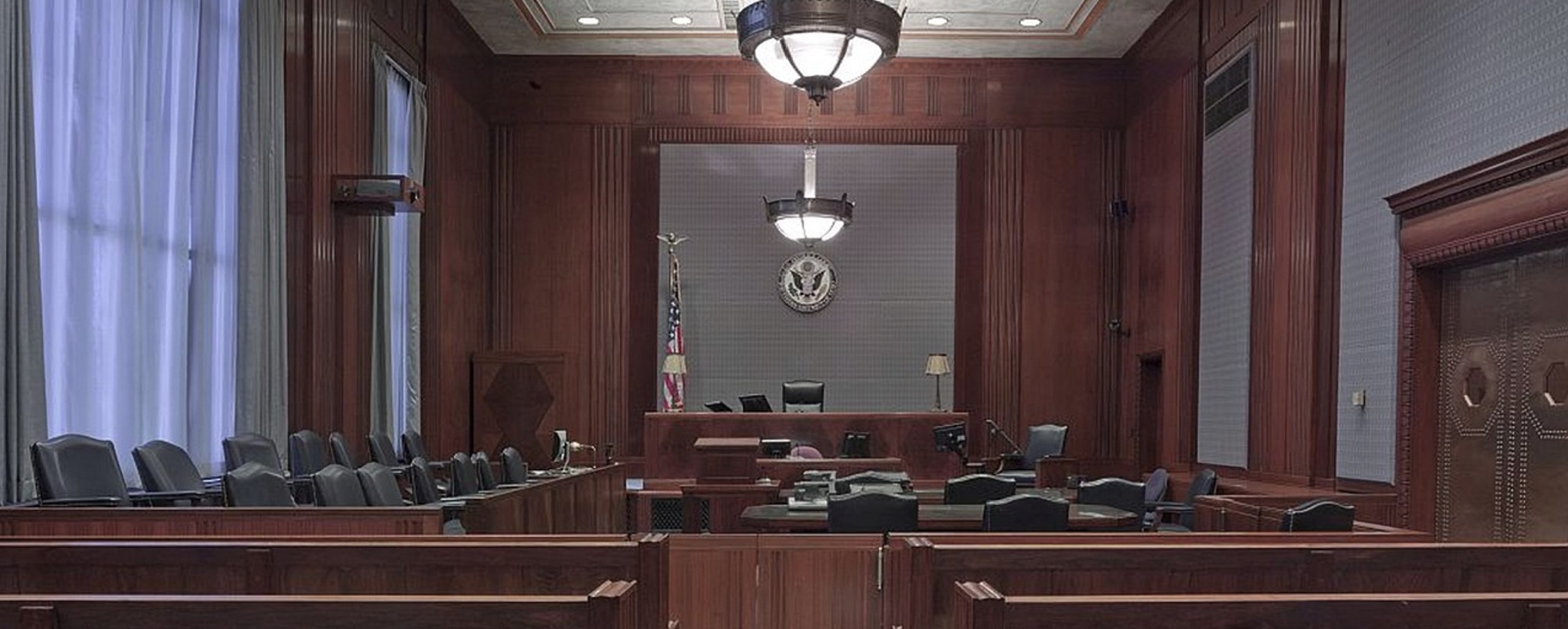What You Need to Know About Perjury in Michigan
Perjury in Michigan courts is a severe offense punishable by years of imprisonment. Anyone facing perjury allegations needs to know about the potential charges and penalties.

Perjury Charges and Penalties
Witnesses testifying in court are obligated to be truthful. Although mistakes happen, knowingly making a false statement is a crime called “perjury.” The perjury charges carry stiff penalties, including imprisonment and years of probation.
Under Michigan law, anyone who commits perjury while testifying in court is guilty of a felony. If someone commits perjury during a trial for a capital crime (a crime carrying a potential penalty of life in prison), the maximum sentence is imprisonment for life. If perjury is committed in any other courtroom proceeding or hearing, the maximum penalty is 15 years in state prison.
Charges and Penalties for Charges Related to Perjury
Subornation of Perjury
Closely connected to perjury is Subornation of Perjury charges. Someone is guilty of suborning perjury if they persuade, permit, or encourage another to commit perjury. The possible penalties for suborning perjury are five (5) years imprisonment and five (5) years of probation. It is immaterial whether the witness actually committed perjury.
Falsely Swearing an Oath
Anyone who legally gives or takes an oath, who falsely swears regarding any matter concerning that oath, is guilty of a felony punishable by up to 15 years in prison and five (5) years of probation.
Evidence of Perjury
Law enforcement can utilize all ordinary investigation tools available in any criminal investigation. Michigan law also allows judges to incarcerate individuals who refuse to provide papers, books, and documents that prove the crime.
Summary Imprisonment for Perjury
If a judge believes someone committed perjury in an affidavit or court proceeding, they can summarily imprison that person pending charges. The accused has a right to bail pending prosecution. Following a conviction, the judge can choose from various penalties, including imprisonment, probation, community service, and more.
Pre-Charge Perjury Allegations
If someone is accused of perjury, they should consult legal counsel immediately and, if possible, before the prosecutor files charges in court. An experienced, reputable pre-charge defense lawyer can often persuade the government not to file felony perjury charges. Most defendants plead guilty because they cannot mount a credible, robust defense. When prosecutors and police know someone will put up a credible, strong defense, they will think twice about seeking a felony charge. Hiring an influential, proactive defense lawyer signals to the prosecutor that they must be careful before proceeding to court.

Frequently Asked Questions About Perjury
“Is perjury a felony in Michigan?”
Perjury committed in court is a felony. Perjury committed during a trial or hearing related to a capital offense (life maximum) is punishable by up to life in prison.
“How do you get out of perjury?”
If you were unaware that your testimony was false (i.e., you honestly believed what you said but were mistaken), then you are innocent of perjury. The best defense to perjury charges or allegations is a strong, credible, experienced defense lawyer. If you face perjury accusations, do not take chances. Hire a top-rated lawyer immediately.
“Is perjury hard to prosecute?”
It is generally agreed upon that proving perjury can be challenging. A prosecution must demonstrate that a person testified under oath to something demonstrably false and that the person who made the statement knew it was untrue when they said it.
“Why is perjury rarely prosecuted?”
Prosecutors are generally reluctant to charge people with perjury because of the highly technical nature of the offense. It can be challenging for a prosecutor to draft a legally sustainable complaint, prove the alleged false testimony’s materiality, and meet the stringent evidentiary rules.
“What is an example of the subornation of perjury?”
Subornation is inducing another person to commit an unlawful act. As an example, Jim tells Tom to lie in a hearing about how an accident occurred, and in exchange for the untruthful testimony, Jim promises to pay Tom part of the insurance settlement. Jim is guilty of suborning perjury. In other words, trying to get someone else to commit perjury is suborning perjury.
“How serious is lying under oath?”
Witnesses accused of perjury may face hefty fines, probation, prison time, and difficulties obtaining security clearances and gaining employment. Because it compromises the justice system’s integrity, perjury is frequently considered an obstruction of justice. In addition to the direct consequences of a perjury conviction, there are severe indirect or collateral consequences to consider.
“Is it perjury if you make a mistake?”
A prosecutor must establish that the defendant knowingly and intentionally made a fraudulent statement to prove perjury. Generally, someone is innocent of perjury if they made an honest mistake, had a memory lapse, or forgot certain facts. Most people want to do the right, tell the truth, and cooperate in court. The desire to cooperate leads some people to give testimony they are not quite sure is correct. It is always best to be honest and admit you can’t remember than to provide an answer you think an attorney may want to hear.
“Is omitting the truth perjury?”
Perjury by omission is possible. For example, suppose the prosecutor asks a witness if they can identify the perpetrator of a crime. If the witness lies and answers “no,” even though they know the perpetrator and there is evidence they lied, the witness would be guilty of perjury. Another example of perjury by omission would be if a judge asked potential jurors, while under oath, to raise their hands if they knew the defendant. If one of the jurors did know the defendant but did not raise their hand, this would be perjury by omission because the juror did not say they didn’t know the defendant.

Defense Attorney for Perjury Charges in Michigan
The Defense Team with LEWIS & DICKSTEIN, P.L.L.C. has decades of experience defending against felony criminal charges, such as perjury. We utilize a unique team approach that consistently and reliably results in extraordinary outcomes for our clients. Judges and prosecutors know and respect our reputation and know our unparalleled successful track record. You are in the right place if you want someone who will genuinely and faithfully fight to protect and defend you. Call us for a free consultation, and we will find a way to help you.
Call us today at (248) 263-6800 for a free consultation or complete an online Request for Assistance Form. We will contact you promptly and find a way to help you.
We will find a way to help you.
We Are Not Afraid to Win!
More Frequently Asked Questions Regarding Perjury Charges and Penalties
What is perjury, and how is it defined under the law?
Perjury is a knowingly false statement made under oath.
What are the elements required to prove perjury in a court of law?
The elements of perjury are as follows:
- First, the defendant was legally required to take an oath in a proceeding in a court of justice (an oath is a solemn promise to tell the truth).
- Second, the defendant took that oath.
- Third, while under that oath, the defendant made a false statement.
- Fourth, the defendant knew the statement was false when they made it.
Can an attorney help me if I have been accused of perjury?
A qualified criminal defense lawyer can help someone accused of perjury.
How can an attorney help prove that a witness committed perjury during a trial?
Private lawyers do not prosecute witnesses for perjury. The prosecutor must prove perjury charges in court.
Are there any defenses against a perjury charge that an attorney can use?
There are many defenses available that a skilled defense lawyer can use to fight perjury charges.
What are the potential consequences or penalties for being found guilty of perjury?
The penalties range from five (5) years to life in prison, depending on the circumstances of the case.
Can an attorney help me avoid perjury charges if I need to testify in court?
An attorney can help a witness avoid perjury charges if that person is required to testify in court. In some cases, the witness might have the right to invoke their right to remain silent under the 5th Amendment to the United States Constitution.
How do attorneys differentiate between perjury and simple mistakes or misstatements?
The facts dictate whether the testimony was false, untruthful, or mistaken. If the attorneys cannot agree, a jury might have to decide.
What role does a prosecutor play in pursuing perjury charges, and how can an attorney help defend against them?
The prosecutor represents the government and attempts to prove the defendant lied under oath. The defense lawyer tries to get the charges dismissed or reduced. If necessary, the prosecutor and defense lawyer argue the case before a jury that ultimately renders a verdict of guilty or not guilty.
Can an attorney help me report suspected perjury committed by another party in a legal proceeding?
An attorney can help you report perjury, but a private lawyer is unnecessary. You can report perjury to the police by filing a report with evidence of the crime. Because police officers are generally reluctant to investigate perjury allegations, having a private lawyer assist you in making the report might be helpful.
How do attorneys gather evidence to prove or disprove perjury allegations?
There are various ways to gather evidence, including obtaining records, interviewing witnesses, ordering transcripts, working with an investigator, etc.
What is the statute of limitations for perjury charges, and can an attorney help if I’m facing a time-sensitive case?
The statute of limitations for perjury is six (6) years.
Can a person be charged with perjury for statements made outside of a courtroom setting, such as in a deposition or affidavit?
Yes, someone can commit perjury in an affidavit or a deposition.













